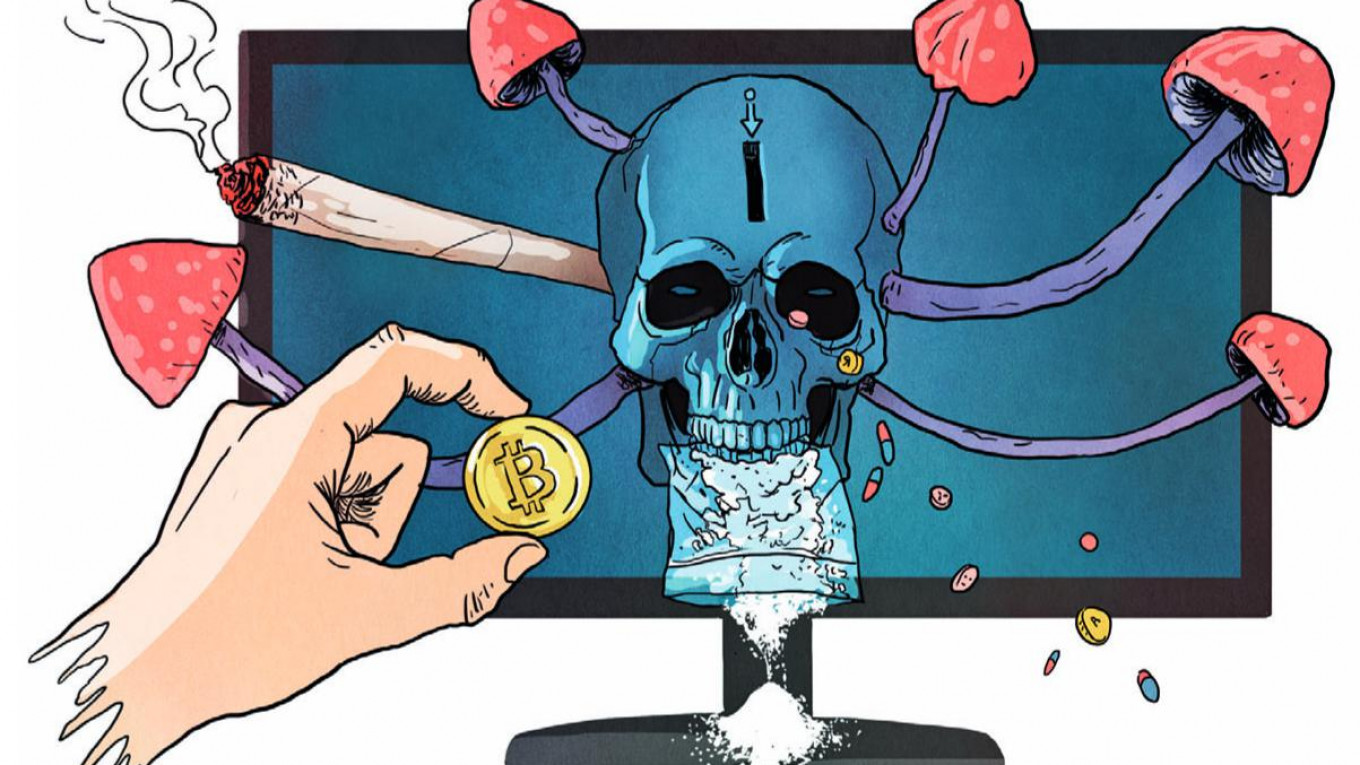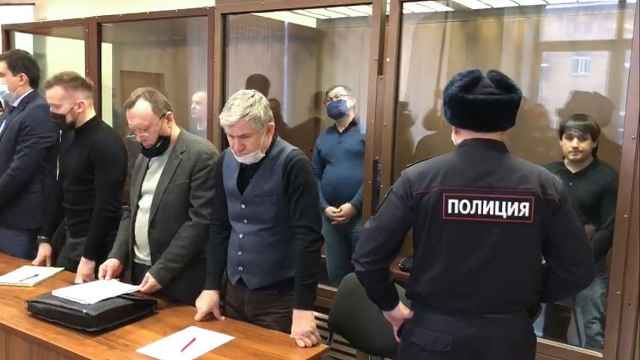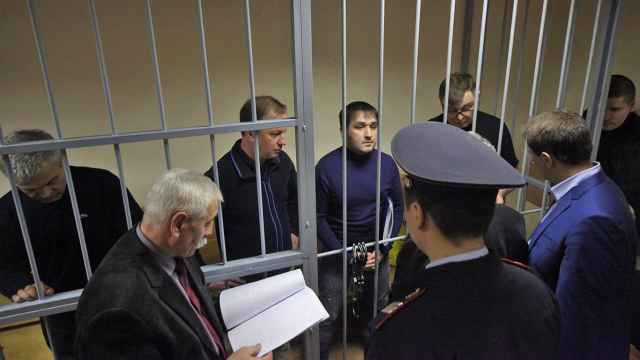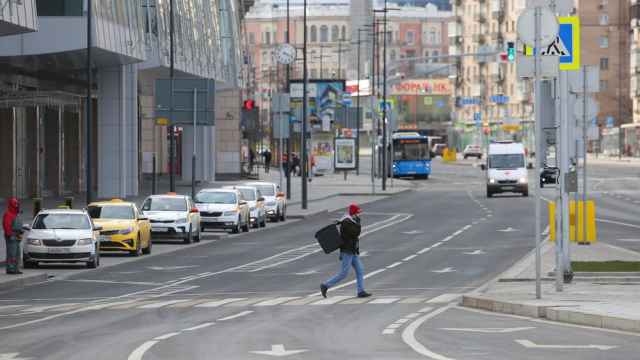For months, Artyom had watched with concern as the park near his house turned into a popular drop spot for drug dealers. The shrubs provided the perfect cover for hiding narcotics their clients would later dig up.
At night, the young software engineer says, that park “looks like a fairy forest” with “fireflies lurking everywhere” as dealers and buyers navigated the shrubbery by the light of their mobile phones. But the danger of the situation only hit home when Artyom’s dog, Tosha, dug up one of these “deliveries” and accidentally overdosed on psychedelics.
After rushing Tosha to a nearby vet, it dawned on Artyom that he would have to take matters into his own hands. He had already informed the police about the park many times, but they did nothing.
The problem isn’t just in Artyom’s neighborhood. Every day, hundreds scour Moscow’s backstreets, the undersides of its park benches and its flower beds for zakladki—industrial-grade plastic bags filled with drugs. These dead drops are neatly sealed and equipped with small magnets so they can cling to rails, windowsills and drainage pipes.
While the goods are delivered to these unlikely corners of Moscow, the deals themselves now originate in an even more bizarre place. The transactions plaguing Artyom’s neighborhood begin in drug supermarkets hidden online in the deepest reaches of the “dark web.”
Here, hundreds of eager suppliers compete to satisfy their customers’ sophisticated palettes. Cryptocurrencies like Bitcoin are the legal tender here. In exchange, buyers are issued GPS coordinates to the spot where their purchases await in flower beds and drain pipes.
The anonymity these marketplaces provide and the fact that they remove the most troublesome link in any drug deal — the real-life meeting between dealer and buyer — have been a boon for Russia’s illegal drug sellers. As of January 2016, the narcotic industry was turning an annual profit of 1.5 trillion rubles ($25 billion), according to Viktor Ivanov, ex-head of Russia’s drug enforcement agency. One online drug supermarket owner told the news website Lenta.ru that his business's turnaround in 2016 amounted to 24 billion rubles ($412 million.)
The online marketplace has also proven almost impossible to police. As a result, Artyom now spends his evenings patrolling his northern Moscow neighborhood to counter Russia’s dealers and junkies.
“We used to have a flower bed in our courtyard, and the flowers started disappearing” Artyom recalls. “At first, I thought some old women were taking them for their gardens in the country, but then I saw that it was these junkies digging them up and looking for their drugs.”
The markets
Hidden away from the “clearnet” indexed by Google, accessible only via specialist software, is one of Russia’s biggest online drug supermarkets.
The site’s front page is an epilepsy-inducing checkerboard of flashing, boldfaced banner ads: “Hashish! Highest Quality Cocaine! Every 5th Drop Free!” More than 100 suppliers sell everything from drugs and disposable “burner” phones and SIM cards to ready-to-move drug labs.
The site is part of a highly competitive and customer-oriented industry. Unlike in the pre-internet days, drug users are no longer forced to meet with shady characters prone to supplying low-quality products.
Dealers offer an exhaustive description of their wares, their chemical components and growing methods (for marijuana, mushrooms and other plant-based narcotics). And quality control is almost obsessive. In the de-monopolized, competitive market of the internet, suppliers are no longer motivated by the short-term benefits of diluting their product with cutting agents.
Cheating is actively discouraged by the site. One market's front page features a warning to suppliers in the form of a Biblical quote from Leviticus: “Ye shall do no unrighteousness in judgement, in meteyard, in weight or in measure; Just balances and just weights ye shall have.”
The most popular items are marijuana and amphetamines. Both have one major advantage: They do not need to be imported.
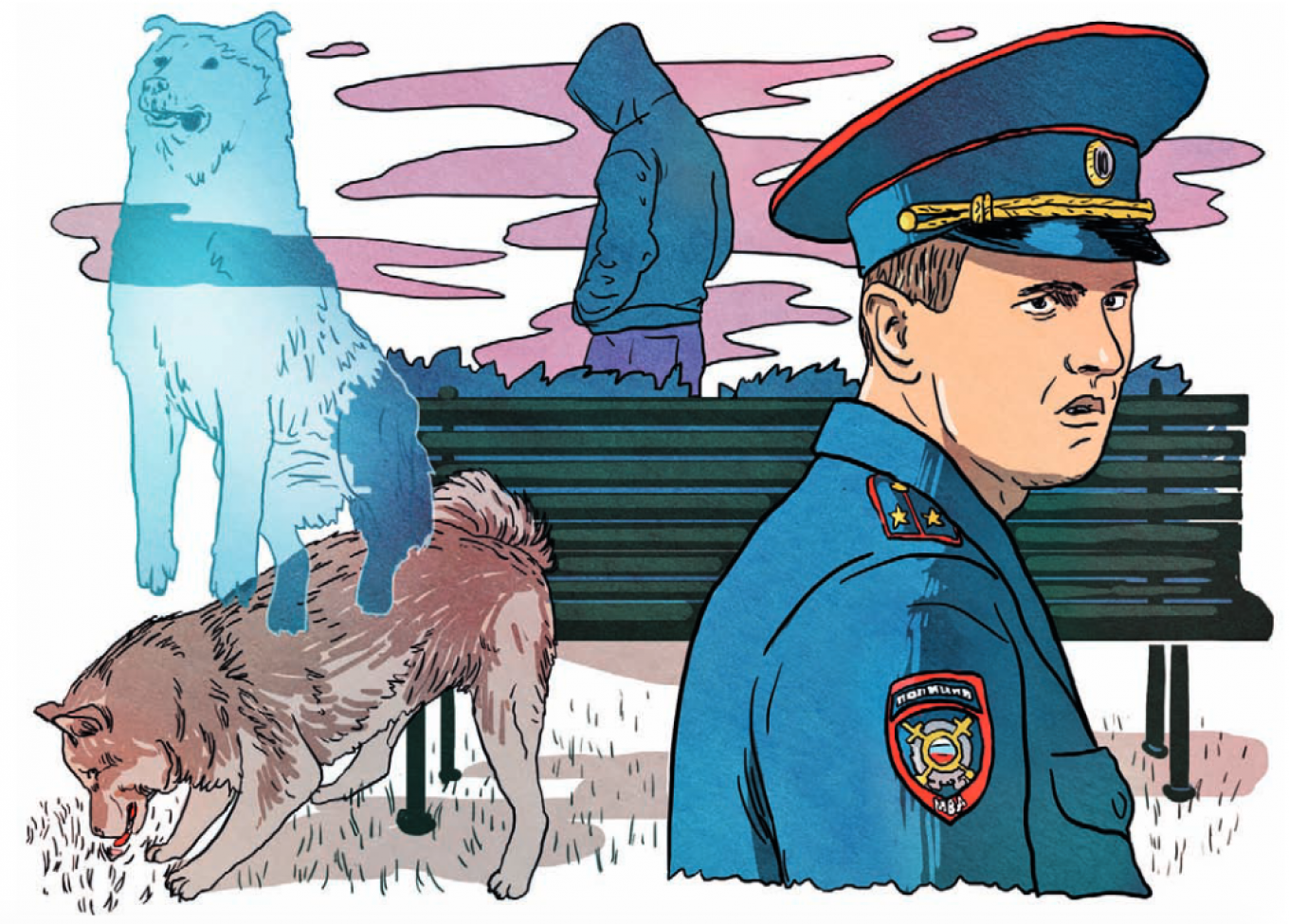
The producers
This is precisely what Sergei did. The online drug business owner, who spoke to The Moscow Times on condition of anonymity, is based in an industrial town in Russia’s “black earth belt.” He says that unemployment drove him to start his own narcotics business. He had already had some dealing experience in the pre-internet days.
“You’re looking for legitimate ways to make ends meet,” he explained. “And then you think: Screw this, I’m going to do the only thing I’m good at, which is selling drugs. It’s the only way to make the kind of money I want to make.”
Sergei is a logistics middleman. He coordinates operations between labs, wholesale dealers, and individual online stores. It’s still a small-scale operation compared to Russia’s major markets, Moscow and St. Petersburg, where a typical online business might employ dozens, including growers, chemists, shopkeepers, and couriers.
Nonetheless, Sergei says his small enterprise makes him around 600,000 rubles ($11,000) a month—30 times the average salary in his hometown.
He loses little sleep over the illegality of his business. It’s the quality of his product that keeps him up at night, he says. “One of my hoarders started cutting my speed with aspirin. Clients started complaining,” Sergei said. “I compared photographs of my stash to pictures they attached to their complaints—it was clearly tampered with. I had to let this guy go. He didn’t mind.”
The enforcers
While the online market may seem safer than the pre-internet days of in-person deals and narcotics with uncertain contents, it is proving a serious problem for Moscow residents and police alike. In areas especially popular with drug “hoarders,” locals complain of constant foot traffic, strangers lurking around, destroying their communal gardens, and generally causing havoc.
These issues are not entirely new. Drug corners are a notorious feature of many urban areas. During the tumultuous mid-1990s, entire Russian towns were practically overrun with drug dealers and their clients in various stages of addiction and withdrawal.
But with the advent of online supermarkets, the drug dealers have sprinted far ahead of law enforcement, which is still struggling to adapt to the internet age.
Plagued by hoarders and frustrated by the flaccid police response, Muscovites like Artyom have begun running their own anti-narcotics patrols.
“My wife and I went to the police with photographs of [hoarders’] cars and hiding spots,” Artyom told the Moscow Times. “The cops didn’t even want to register a crime. They told us they weren’t interested in small-time drug users. They said hoarders were difficult to catch.”
Rather than ramping up efforts, Russia’s drug enforcement authority — the Directorate for Drug Control — recently downsized. The organization was demoted last year from an independent government agency, the Federal Service for Drug Control, to a department within the Interior Ministry.
Aleksandr Mikhailov, a retired drug enforcement officer, is critical of recent reforms within the ministry. But he is prepared to cut his colleagues some slack.
“Don’t shoot the pianist,” he told The Moscow Times, quoting Oscar Wilde. “He is doing his best. The structure of the fight against drugs is still being formed.”
And policing the online markets is an exasperating task. In an online discussion forum for law enforcement, one police officer complains it is ridiculous that a whole website can be shut down over an “extremist” joke, but it’s impossible to shut down an entire online drug market generating millions of rubles of illicit revenue.
The Directorate for Drug Control declined to comment for this article, citing ongoing investigations. The new agency does not have access to its predecessor’s data and could not compare drug-related arrests from last year. The department does not distinguish between online and offline drug offenses. Recently released crime statistics from the Interior Ministry show that 71,207 drug-related crimes were registered in Russia in the first four months of 2017. However, there is no way of knowing how many of those crimes related by online drug markets.
The new challenges facing drug enforcement agencies are not confined to Russia, says retired officer Mikhailov. Rather, this is a global issue. Among most difficult challenges are new online drug markets and the increasingly dangerous substances filling their virtual shelves.
According to a 2016 UN report, there has been a fivefold increase in seizures of new synthetic psychoactive substances worldwide.
The solution, Mikhailov says is not to chase after “hoarders” or to shut down online drugs supermarkets. If the Directorate shuts down one — like the FBI did with SilkRoad and its clones — dozens more will rush to fill the void, he says. Rather, he believes drug enforcement agencies should decrease demand by investing in programs that raise awareness about the dangers of drugs.
Regardless of the approach the police choose, Russia’s authorities are likely to remain a few steps behind the drug dealers. The technology dealers are using is growing ever more innovative. Drugs can now be delivered by drones. There are Twitter bots promoting Chinese online stores selling methadone.
These innovations show no sign of slowing. The best cops can do, another online drug store owner told the Moscow Times, is to ambush a popular hoarding site in the hopes of filling their monthly arrest quota.
If detained, a hoarder might reveal the location of another popular dead drop site. Interrogating a random drug user in hopes of catching a dealer is pointless because online anonymity means they couldn’t name names even if they wanted to.
And with their illegal industry growing more profitable and increasingly professionalized, few sellers express any qualms about their business.
“I don’t care about the moral consequences of the work I’m doing,” one told The Moscow Times. “If teenagers are buying drugs from me, it’s their parents’ failure, not mine. The only immoral part of it, perhaps, is that I’m not paying any taxes.”
Nina Abrosimova and Eric Woods contributed reporting for this article
A Message from The Moscow Times:
Dear readers,
We are facing unprecedented challenges. Russia's Prosecutor General's Office has designated The Moscow Times as an "undesirable" organization, criminalizing our work and putting our staff at risk of prosecution. This follows our earlier unjust labeling as a "foreign agent."
These actions are direct attempts to silence independent journalism in Russia. The authorities claim our work "discredits the decisions of the Russian leadership." We see things differently: we strive to provide accurate, unbiased reporting on Russia.
We, the journalists of The Moscow Times, refuse to be silenced. But to continue our work, we need your help.
Your support, no matter how small, makes a world of difference. If you can, please support us monthly starting from just $2. It's quick to set up, and every contribution makes a significant impact.
By supporting The Moscow Times, you're defending open, independent journalism in the face of repression. Thank you for standing with us.
Remind me later.



